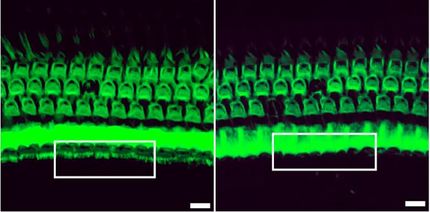Scientists identify genetic cause of previously undefined primary immune deficiency disease
Researchers at the National Institutes of Health have identified a genetic mutation that accounts for a perplexing condition found in people with an inherited immunodeficiency. The disorder, called combined immunodeficiency, is characterized by a constellation of severe health problems, including persistent bacterial and viral skin infections, severe eczema, acute allergies and asthma, and cancer.
The team that made the discovery was led by Helen Su, M.D., Ph.D., at the National Institute of Allergy and Infectious Diseases (NIAID), and included collaborators from NIAID and the National Cancer Institute (NCI). The research is reported in New England Journal of Medicine .
"NIH clinicians have cared for people with unusual and difficult-to-treat immune disorders for decades," says NIAID Director Anthony S. Fauci, M.D. "This study exemplifies their commitment to improving the lives of people with these diseases by trying to uncover the causes of these disorders and thereby better understanding how to treat them."
Combined immunodeficiency is a type of primary immune deficiency disease (PIDD) in which several parts of the immune system are affected. This inherited disorder is characterized by increased susceptibility to bacterial, viral and fungal infections of various organs of the body. In some cases, susceptibility to cancers also may be seen.
The NIAID and NCI investigators recognized that certain patients with an undefined form of combined immunodeficiency shared enough clinical features to make it likely that the cause might be a common genetic mutation. Originally, these individuals were thought to have a variant form of hyper-immunoglobulinema E syndrome (HIES), a disorder characterized by increased levels of a class of antibodies known as immunoglobulin E, superficial and systemic bacterial and fungal infections, and atopic dermatitis, also known as eczema.
This newly described group, however, had far more severe eczema than is typical in people with variant HIES. They also had extensive and difficult-to-manage viral infections of the skin, such as warts, molluscum contagiosum —a type of poxvirus that only infects the skin — and herpes simplex. Some in this group also developed skin cancers, as well as lymphoma of the skin.
"Even though these individuals were diagnosed with a more uncommon form of HIES, they were still considered to have a mystery disease, because they had severe allergies and had developed cancers," says Dr. Su.
Using a technique called comparative genomic hybridization, a process by which large amounts of DNA is fixed to a computer chip and analyzed for changes in the genes, scientists examined the genes in the tissue samples from five different groups: the 11 individuals with the unknown immunodeficiencies, people with the variant form of HIES, people with classic HIES, those with other immunological diseases, and healthy individuals. The researchers discovered that people with the unique form of HIES had mutations in a gene called DOCK8 that led to deletions in parts of the gene. The normal function of DOCK8 is currently unknown.
When compared with healthy individuals, the people with DOCK 8 mutations had fewer CD8 positive T cells, immune cells needed to fight viral infections; fewer antibody-producing B cells; and increased numbers of eosinophils — immune cells associated with allergy.
According to Dr. Su, these findings indicate that DOCK8 is essential for defense against viral infections and for preventing the development of cancer and allergies.
Although further study is required to determine if DOCK8 mutations occur in other people with similar disease symptoms, DOCK8 immunodeficiency syndrome may be a new PIDD. These findings mean that individuals with this rare disease will be able to receive a more accurate diagnosis. Identifying a genetic cause for the disease provided comfort to some of those diagnosed who had battled an unknown immune disease for years, according to Dr. Su.
"The study of inherited disorders and the genetic alterations that are responsible for their complex array of disease symptoms has often resulted in the discovery of causative genes that play a role in cancer initiation," said NCI Director John E. Niederhuber, M.D. "The disease mutations found in this study in the DOCK8 gene exemplify that kind of important finding. As with any discovery of a genetic defect, the challenge going forward is to develop a complete knowledge of the cascading pathways of biological function for which DOCK8 is responsible."
Other news from the department science
Most read news
More news from our other portals
See the theme worlds for related content
Topic world Antibodies
Antibodies are specialized molecules of our immune system that can specifically recognize and neutralize pathogens or foreign substances. Antibody research in biotech and pharma has recognized this natural defense potential and is working intensively to make it therapeutically useful. From monoclonal antibodies used against cancer or autoimmune diseases to antibody-drug conjugates that specifically transport drugs to disease cells - the possibilities are enormous

Topic world Antibodies
Antibodies are specialized molecules of our immune system that can specifically recognize and neutralize pathogens or foreign substances. Antibody research in biotech and pharma has recognized this natural defense potential and is working intensively to make it therapeutically useful. From monoclonal antibodies used against cancer or autoimmune diseases to antibody-drug conjugates that specifically transport drugs to disease cells - the possibilities are enormous























































